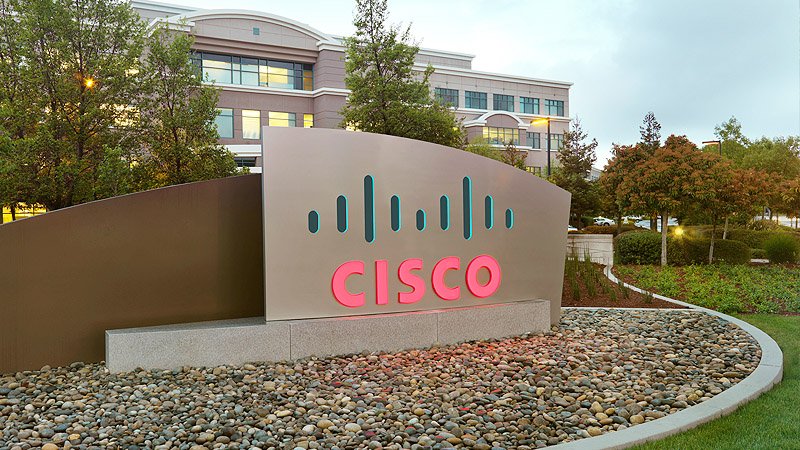Splunk Observability unlocks actionable AI insights to help organizations improve the reliability of their entire digital estate
Today Cisco announced agentic AI-powered Splunk Observability, an AI-native approach to observability that sets a new standard for how customers can strengthen their resilience. The enhanced Splunk Observability portfolio unifies observability across environments, surfaces actionable business context, and deploys AI-powered agents across the full incident response lifecycle, while monitoring both its performance and quality. Through integrations across Cisco technologies with Splunk, customers gain unmatched visibility and correlation of data insights across their networks, infrastructure, and applications to improve the reliability of their entire digital estate.
“Our mission is clear – to help organizations put AI applications and agents to work, while retaining visibility and control,” said Patrick Lin, SVP and GM of Splunk Observability. “With the latest innovations in Splunk Observability, we are empowering enterprises to proactively monitor their critical applications and digital services with ease, resolve issues before they escalate, and ensure the value and outcomes they derive from observability are commensurate with the cost.”
Agentic AI is reshaping what it takes to build a leading observability practice. As AI-assisted coding gains steam, applications will be built with less human involvement. At the same time, a new wave of AI-enabled applications and AI agents demand specialized telemetry to confirm models are performing as intended – aligned to business purpose and cost. To keep pace, organizations need unified, in-context, visibility across all of these environments to prioritize issues based on business impact.
Agentic AI-powered observability: proactive detection, investigation and resolution
Splunk is advancing Cisco’s AgenticOps vision through an enhanced Splunk Observability portfolio, supercharged by new agentic AI innovations. These innovations will deploy AI agents to automate telemetry collection and alert configuration, detect issues, identify root causes, and recommend fixes – freeing ITOps and engineering teams to focus on innovation. These advancements include:
- AI Troubleshooting Agents: Offered in Splunk Observability Cloud and Splunk AppDynamics, these agentic AI features automatically analyse incidents and surface potential root causes, helping users to quickly act on issues.
- Event iQ: Offered in Splunk IT Service Intelligence (ITSI), Event iQ helps teams easily set up automated alert correlation to quickly reduce alert noise and gain clear context on grouped alerts.
- ITSI Episode Summarization: In conjunction with AI-driven alert correlation through Event iQ, Episode Summarization in Splunk ITSI automatically provides overviews of grouped alerts, including trends, impact and root cause, to help troubleshoot faster.
Observability for AI to monitor the performance of AI agents, LLMs, and infrastructure
As organizations integrate AI and large language models (LLMs) into their applications and deploy AI agents, they need specialized analytics to help ensure their AI is behaving as intended. Splunk helps teams proactively monitor the health, security, and cost of their AI application stack, including agents, LLMs, and AI Infrastructure, with:
- AI Agent Monitoring: Monitors the quality, security, and cost of LLMs and AI agents to determine whether models are performing at the right price and as intended, to align with business goals.
- AI Infrastructure Monitoring: Proactively monitors the health and consumption of AI infrastructure by alerting on bottlenecks and spikes across services to manage costs.
Unified observability that surfaces business and end-user impact
Cisco is bringing the best of Splunk AppDynamics and Splunk Observability Cloud together to provide a unified experience across three-tier and microservices environments, and deepening integration with Cisco ThousandEyes so ITOps, NetOps and Engineering teams can pinpoint the network’s impact on application performance and end-user experience. The innovations include:
- Business Insights in Splunk Observability Cloud: Teams can correlate application performance with the real-time health of critical business processes, such as checkout, loan processing, and supply chain flows with minimal setup.
- Digital Experience Analytics in Splunk Observability Cloud: Product and design teams can gain deep visibility into user journeys and behaviour, accessing richer customer experience insights and a faster setup.
- APM support for hybrid apps and business transactions in Splunk Observability Cloud: These capabilities strengthen APM for cloud-native applications and extend support for hybrid environments—building on Splunk AppDynamics’ expertise in monitoring traditional three-tier applications.
- Session Replay for Real User Monitoring (RUM) for Splunk AppDynamics and Splunk Observability Cloud: New Browser and Mobile Session Replay in Splunk AppDynamics and Splunk Observability Cloud will help teams optimize online experiences.
- Splunk AppDynamics Agent: Leveraging OpenTelemetry, this agent enables customers to collect data in either Splunk AppDynamics or Observability Cloud, enabling Splunk AppDynamics customers to use the observability offering that suits their needs.
- Splunk Observability Cloud Real User Monitoring (RUM) Integration with Cisco ThousandEyes: Users can correlate real-user experience with network performance across owned and third-party domains, to help pinpoint regions or services affected by network bottlenecks.
“Through the new agentic AI innovations within Splunk Observability, Cisco offers organizations more proactive visibility and actionable insights into both their digital operations and AI system health and performance,” said Torsten Volk, Principal Analyst, Application Modernization, Enterprise Strategy Group. “These kinds of capabilities are critical as enterprises look to scale AI in a controlled and reliable manner.”
Availability:
- Splunk AI Agent Monitoring, AI Troubleshooting Agents, ITSI Episode Summarization, Business Insights, Digital Experience Analytics, and Splunk RUM Integration with Cisco ThousandEyes are available or will be available soon in Alpha (private preview).
- All other innovations listed are now generally available to all global regions.
For more details on all of Splunk’s .conf25 announcements, please visit our newsroom. Availability dates and regions are subject to change.
Many of the products and features mentioned are still in development and will be made available as they are finalized, subject to ongoing evolution in development and innovation. The timeline for their release is subject to change.
About Cisco
Cisco (NASDAQ: CSCO) is the worldwide technology leader that is revolutionizing the way organizations connect and protect in the AI era. For more than 40 years, Cisco has securely connected the world. With its industry leading AI-powered solutions and services, Cisco enables its customers, partners and communities to unlock innovation, enhance productivity and strengthen digital resilience. With purpose at its core, Cisco remains committed to creating a more connected and inclusive future for all. Discover more on The Newsroom and follow us on X at @Cisco.
Cisco and the Cisco logo are trademarks or registered trademarks of Cisco and/or its affiliates in the U.S. and other countries. A listing of Cisco’s trademarks can be found at http://www.cisco.com/go/trademarks. Third-party trademarks mentioned are the property of their respective owners. The use of the word ‘partner’ does not imply a partnership relationship between Cisco and any other company.
About Splunk LLC
Splunk, a Cisco company, helps build a safer and more resilient digital world. Organizations trust Splunk to prevent security, infrastructure and application issues from becoming major incidents, absorb shocks from digital disruptions, and accelerate digital transformation.
Splunk and the Splunk> logo are trademarks or registered trademarks of Cisco and/or its affiliates in the U.S. and other countries. A listing of Cisco’s trademarks can be found at http://www.cisco.com/go/trademarks. Third-party trademarks mentioned are the property of their respective owners. The use of the word “‘partner”’ does not imply a partnership relationship between Cisco or its affiliates and any other company.

























